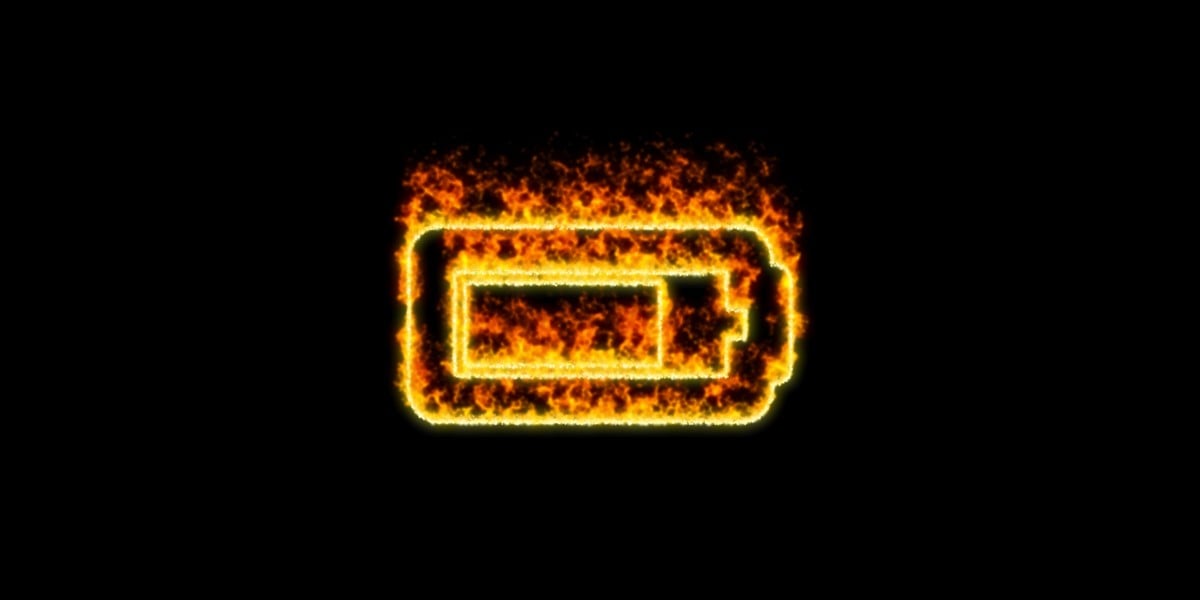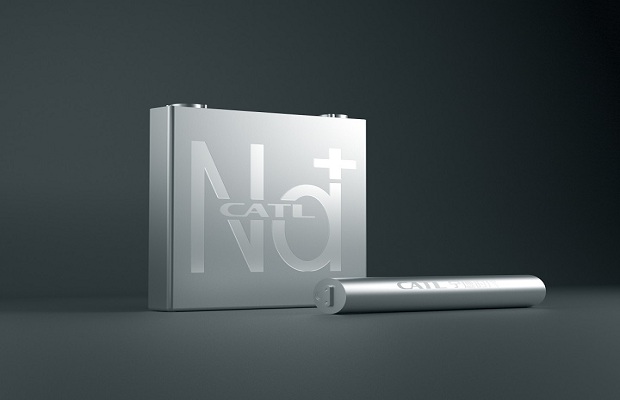Another, e-bike fire which happened in Cumbria last Sept makes news.
- Thread starter Ocsid
- Start date
Sad indeed but the incident needs to be kept in perspective with the number and causes of all UK fires.
E-bike battery fires are, according to this very informative link HERE, not mentioned specifically and shows there are many other causes to concern ourselves with first.
As has been said in this forum many times before, not leaving the battery on charge any longer than is necessary, is a good habit to get into.
E-bike battery fires are, according to this very informative link HERE, not mentioned specifically and shows there are many other causes to concern ourselves with first.
As has been said in this forum many times before, not leaving the battery on charge any longer than is necessary, is a good habit to get into.
Probably though they are bundled under the "batteries" entry?Sad indeed but the incident needs to be kept in perspective with the number and causes of all UK fires.
E-bike battery fires are, according to this very informative link HERE, not mentioned specifically and shows there are many other causes to concern ourselves with first.
As has been said in this forum many times before, not leaving the battery on charge any longer than is necessary, is a good habit to get into.
That whole sector being the second most common cause, that document claims:
"2. Electrical distribution: 2,962 fires
Electrical distribution accounts for 12% of accidental house fires and 6% of deaths. Common sources of ignition include:
Wiring, cabling & plugs
Apparatus, batteries & generators
Heating equipment"
Thanks, I hadn't spotted that - a greater breakdown of battery fires would be informative.Probably though they are bundled under the "batteries" entry?
That whole sector being the second most common cause, that document claims:
"2. Electrical distribution: 2,962 fires
Electrical distribution accounts for 12% of accidental house fires and 6% of deaths. Common sources of ignition include:
Wiring, cabling & plugs
Apparatus, batteries & generators
Heating equipment"
From the journalistic point of view, I suspect E-bike battery fire reports are 'good news/click bait' though.
I agree a more detailed breakdown would be more informative reading, and might aid better targeting those creating the risks, though I suspect the info is out there just not readily accessible to the public.
I can't see why journalist might be overly focused on quoting e-bike related fires, clearly though, me included, an area we here have a sensitivity in noting? The press though I feel frequently leave those wanting details rather than impact, in the dark.
I do though suspect it is of the battery related fires one of the more significant ones as it is an area where probably more than most domestic user products involving recharging, one where there is a higher user self-build and reconfiguring involvement? An aspect just touched on by the manging investigating officer, quoted in the press report. Plus of course, with domestic items, a product where far larger amounts of energy are involved than most other than EVs.
I can't see why journalist might be overly focused on quoting e-bike related fires, clearly though, me included, an area we here have a sensitivity in noting? The press though I feel frequently leave those wanting details rather than impact, in the dark.
I do though suspect it is of the battery related fires one of the more significant ones as it is an area where probably more than most domestic user products involving recharging, one where there is a higher user self-build and reconfiguring involvement? An aspect just touched on by the manging investigating officer, quoted in the press report. Plus of course, with domestic items, a product where far larger amounts of energy are involved than most other than EVs.
The news report is so vague and uninformative. Yes it might do commercial damage to the brand but surely far more important to tell people the make and model and if there are any other factors?
This statement suggest the cyclist was at fault "I would also urge people to follow the manufacturer’s instructions, only using batteries and chargers which have been supplied with the vehicle or approved by the manufacturer. "
Alternatively it could just be a vague statement not actually connected with this situation. Maybe it was a custom ebike. I just feel I've learned nothing from this news report because of the complete lack of detail. That lack of detail means people can just make their own assumptions now like 'all ebikes are dangerous' or 'this ebike was incorrectly charged so I will be safe because I don't do that'. It's just frustrating and lazy journalism.
This statement suggest the cyclist was at fault "I would also urge people to follow the manufacturer’s instructions, only using batteries and chargers which have been supplied with the vehicle or approved by the manufacturer. "
Alternatively it could just be a vague statement not actually connected with this situation. Maybe it was a custom ebike. I just feel I've learned nothing from this news report because of the complete lack of detail. That lack of detail means people can just make their own assumptions now like 'all ebikes are dangerous' or 'this ebike was incorrectly charged so I will be safe because I don't do that'. It's just frustrating and lazy journalism.
No one knows if this is a diy ebike , an incorrect charger was used or even a multi point overload socket or extension lead was used, the fact an ebike battery is involved as mentioned is click bate for a news scare story.
It could make a difference if the battery is on /off the bike or whether it is sited near to another heat source like a hot radiator.
Even a dropped battery could be an issue which most won't bat an eye lid to as they do with there phnes or other battery powered items.
With no hard facts to all likely scenarios it is all open to speculation as we know.
The only real fact we have is an unattended battery left charging over night, that alone is a high risk option and as in this case has proved fatal.
Folks relying on smoke alarms where lithium is involved one is not likely to know much about the fire as the smoke fumes inhaled will silently kill you in your sleep or get you before you reach safety if woken.
It could make a difference if the battery is on /off the bike or whether it is sited near to another heat source like a hot radiator.
Even a dropped battery could be an issue which most won't bat an eye lid to as they do with there phnes or other battery powered items.
With no hard facts to all likely scenarios it is all open to speculation as we know.
The only real fact we have is an unattended battery left charging over night, that alone is a high risk option and as in this case has proved fatal.
Folks relying on smoke alarms where lithium is involved one is not likely to know much about the fire as the smoke fumes inhaled will silently kill you in your sleep or get you before you reach safety if woken.
Fair comment, though I dont see this as being from a high end shop bought Ebike or they'd get sued to death.No one knows if this is a diy ebike , an incorrect charger was used or even a multi point overload socket or extension lead was used, the fact an ebike battery is involved as mentioned is click bate for a news scare story.
Sodium ion and other alternative technologies and batteries, can't arrive soon enough
European startups making better batteries for a more sustainable energy transition

 www.eu-startups.com
www.eu-startups.com
Flaming USB battery halts flight from Taiwan to Singapore
And that’s why aviation authorities don’t allow power banks in checked luggage

 www.theregister.com
www.theregister.com
Chinese Sodium-Ion Battery Material Startup Raises Millions of US Dollars From Lightspeed China
Pusan Researchers Develop Sodium-Ion Battery Anode to End Lithium Dependence

 www.saurenergy.com
www.saurenergy.com
European startups making better batteries for a more sustainable energy transition

European startups making better batteries for a more sustainable energy transition | EU-Startups
The application of batteries has become increasingly important in the modern world. From powering our phones to running machines and equipment, batteries
Flaming USB battery halts flight from Taiwan to Singapore
And that’s why aviation authorities don’t allow power banks in checked luggage

Flaming USB battery halts flight from Taiwan to Singapore
And that’s why aviation authorities don’t allow power banks in checked luggage
Chinese Sodium-Ion Battery Material Startup Raises Millions of US Dollars From Lightspeed China
Pusan Researchers Develop Sodium-Ion Battery Anode to End Lithium Dependence

Pusan Researchers Develop Sodium-Ion Battery Anode
Pusan National University Researchers Develop Efficient Sodium-Ion Battery Anode for Energy Storage To End Lithium Dependence
By the time the fire service investigation has determined what happened exactly and written it's report, it ceases to be of use as alarmist clickbait. Chances are, we'll never know any more about this.No one knows if this is a diy ebike , an incorrect charger was used or even a multi point overload socket or extension lead was used, the fact an ebike battery is involved as mentioned is click bate for a news scare story.
It could make a difference if the battery is on /off the bike or whether it is sited near to another heat source like a hot radiator.
Even a dropped battery could be an issue which most won't bat an eye lid to as they do with there phnes or other battery powered items.
With no hard facts to all likely scenarios it is all open to speculation as we know.
The only real fact we have is an unattended battery left charging over night, that alone is a high risk option and as in this case has proved fatal.
Folks relying on smoke alarms where lithium is involved one is not likely to know much about the fire as the smoke fumes inhaled will silently kill you in your sleep or get you before you reach safety if woken.
Sodium ion and other alternative technologies and batteries, can't arrive soon enough.
- Thanks for those listing guerney, - informative.
- At my stage of life I don't necessarily read articles in the detail that I used to, but the main thrust of them seemed to concentrate on the 'alternative to lithium' aspect.
- Did I miss any aspect of the fire risk/volatility of Sodium ion vs Lithium ion?
- I mean, if the energy density of Sodium ion batteries is going to be on a par with Lithium ion, then a short circuit is going to be equally destructive is it not?
- Maybe that's an overly simplified view?
Developments appear to be rapid, but from what I've read: they can be stored(transported) at zero charge, there's no thermal runaway, fires are easier to extinguish, and have a wider safe operating temperature range.Did I miss any aspect of the fire risk/volatility of Sodium ion vs Lithium ion?
Related Articles
-
 MTF Enterprises announces acquisition of EMU Electric Bikes
MTF Enterprises announces acquisition of EMU Electric Bikes- Started by: Pedelecs
-
 Wisper 806T folding bike wins Which? ‘Best Buy’
Wisper 806T folding bike wins Which? ‘Best Buy’- Started by: Pedelecs
-
 Sustrans calls for protected cycle lanes
Sustrans calls for protected cycle lanes- Started by: Pedelecs
-
 Amazon launch their first UK e-cargo micromobility hub
Amazon launch their first UK e-cargo micromobility hub- Started by: Pedelecs



